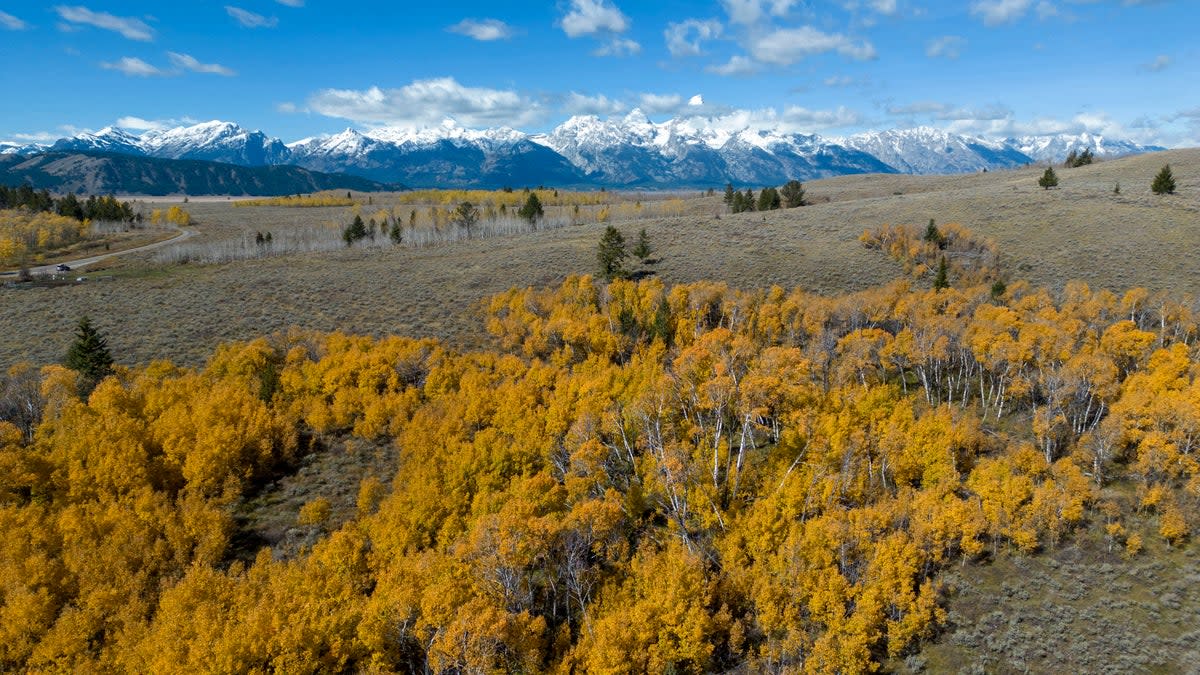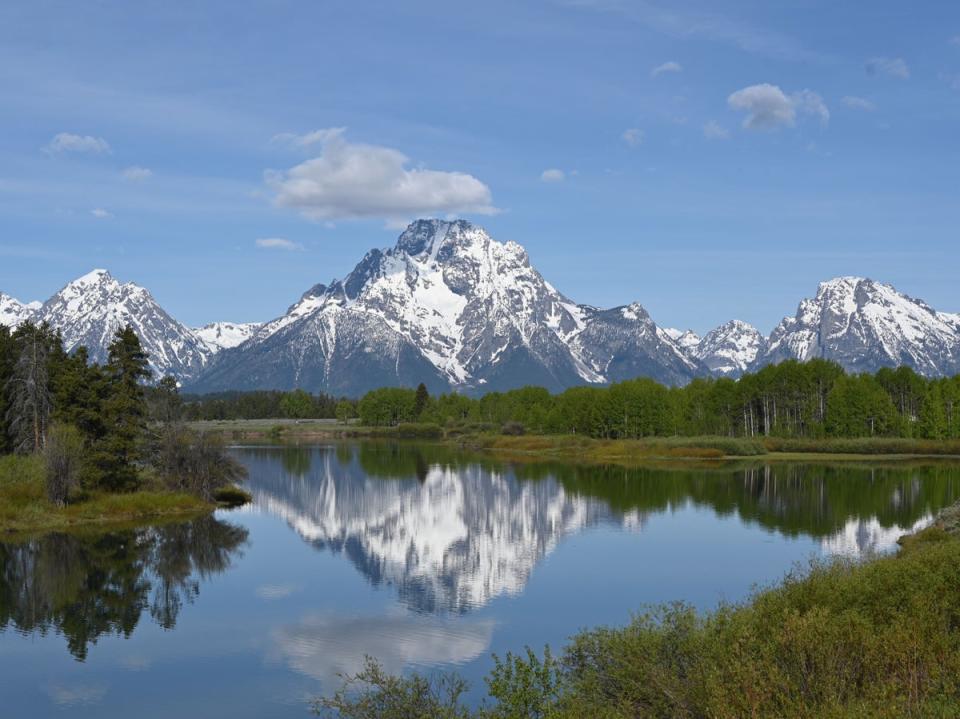Wyoming officials table controversial move to auction off 640 acres of Grand Teton National Park

Top Wyoming officials have decided to hold off on the controversial auction of land within the state-owned Grand Teton National Park after residents opposed the potential construction of luxury houses.
The move to table the auction comes after the state Board of Land Commissioners voted 5-0 on Thursday against selling the large chunk of land in the park for now, but hope to continue negotiations with the US government on a potential purchase or a land swap.
The land from the national park would be sold to meet a legal mandate to raise more money for schools in the state, but while it would help local communities, the auction was met with outrage and backlash from thousands of residents.
State Lands Director Jenifer Scoggin recommended the auction, and the land was appraised for $62.4 million, with a suggested minimum bid of $80 million and a predicted yield of millions of dollars a year, compared to the annual $2,800 it currently makes from grazing and recreation leases.
The area proposed for auction is the 640-acre Kelly Parcel, originally a State Trust Land granted to states hundreds of years ago, which now primarily helps states support their public schools by leasing and selling the land to generate revenue.
Yet the Grand Teton National Park swallowed the Kelly Parcel and became an essential habitat for moose, elk, deer, and other wildlife, yet it generates very little revenue for schools, prompting the recommendation of the auction.
Talks with the federal government and Wyoming officials, namely the all-Republican State Board of Land Commissioners, fell through in the past to protect the Kelly Parcel as they were due to buy it no later than 2015.
Yet the sale was left hanging in the air, so officials sought after an auction to raise funds, but now the threat of luxury homes encroaching on the pristine wildlife reserve and resident backlash has also caused the auction to be halted.
“We need to let the federal government know that they cannot just roll over Wyoming,” Wyoming Superintendent of Public Instruction Megan Degenfelder said on Thursday, according to the Cowboy State Daily.

“They need to come to the table [and] negotiate, so we can protect the Kelly Parcel. There are other options than the auction we have on the table today; we just need more time.”
It was speculated by state lands staff in a report that a luxury home developer was planning on dividing the land into lots no smaller than 35 acres each and building luxury homes in them.
The developer would also most likely pay the most money for the state-owned land.
Yet despite the hefty sum and revenue this could bring, park owners and residents were worried about the threat of mega-mansions being developed on what currently is land that helps preserve Wyoming’s wildlife.
The threat of huge mansions built for the wealthy elite eroding the Wyoming wildlife received huge opposition from Wyoming residents, with more than 12,500 submissions as of Thursday to the state on the National Wildlife Federation Action Fund website against the auction.
“This area should not be destroyed by the construction of luxury houses and other development,” read one submission, according to AP.
“Too much development has already encroached on critical winter habitat near the park.”
Chip Jenkins, superintendent of Grand Teton National Park, was pleased with the voting outcome and thanked the board in Thursday’s meeting.
“If you care about the pronghorn herds and mule deer coming from Pinedale, you care about the mule deer herds connecting with the Wind River Reservation, it’s ensuring that there is no development on the Kelly Parcel that is needed in order to maintain those wildlife populations,” he said to Cowboy State Daily.
Wyoming officials hope that the federal government will step in to save the Parcel through further negotiations, as it has done in the past with other Wyoming land, such as in 2016 when a Parcel was at threat of being auctioned off and was bought by the Interior Department for $46 million.
While the backlash has halted auctions for now, the State Board of Land Commissioners will revisit the proposal in the fall of 2024 if no further action has been taken.


